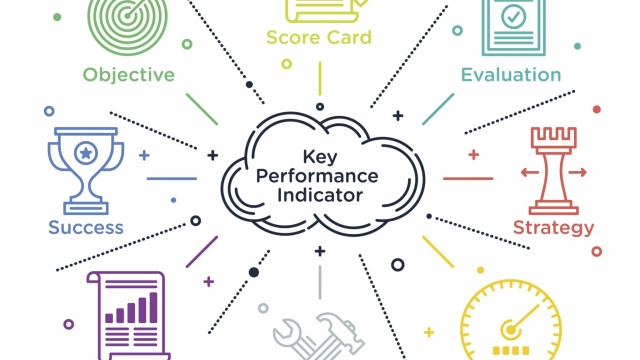
In today’s rapidly evolving business landscape, staying ahead of the competition requires more than just working hard; it demands a comprehensive understanding of your organization’s performance. This is where Key Performance Indicators, or KPIs, come into play. KPIs are powerful tools that provide valuable insights into various aspects of a company’s success. By measuring and tracking specific metrics, businesses can unlock a wealth of information that can guide strategic decision-making and drive sustainable growth.
At its core, a Key Performance Indicator is a quantifiable measure that evaluates the performance of a specific goal or objective. These indicators serve as signposts, helping businesses gauge progress, identify areas for improvement, and measure the effectiveness of various strategies. More than just numbers on a spreadsheet, KPIs paint a detailed picture of an organization’s health, providing executives and managers with a holistic view of key areas such as sales, customer satisfaction, operational efficiency, and financial performance.
The beauty of Key Performance Indicators lies in their versatility. They can be customized to fit the unique needs and goals of different businesses and industries. Whether it’s a startup striving to gain market share or a well-established corporation seeking to optimize its processes, KPIs offer a framework for setting targets, tracking progress, and achieving success. By understanding the power of KPIs and harnessing their potential, businesses can navigate the complexities of their operations with confidence and take proactive steps towards sustainable growth.
1. Understanding Key Performance Indicators
Key Performance Indicators (KPIs) are essential tools used by organizations to measure and track their progress towards achieving specific goals and objectives. These indicators provide valuable insights into the performance and overall health of a business, allowing managers and decision-makers to make informed decisions based on accurate and relevant data.
When it comes to understanding KPIs, it is crucial to first identify the key drivers of success for your organization. These drivers can vary depending on the nature of your business and the goals you have set. By determining what truly matters in terms of achieving success, you can then identify and define the most relevant and meaningful KPIs that align with your objectives.
Once you have identified and defined your KPIs, it is essential to establish clear and measurable targets for each indicator. Setting specific targets ensures that everyone within the organization understands what is expected and provides a benchmark for evaluating performance. Regular monitoring of these targets allows for timely identification of any deviations or areas that require improvement.
In summary, Key Performance Indicators are crucial tools that enable organizations to measure and track their progress towards achieving specific goals. By identifying the key drivers of success, defining relevant KPIs, and setting measurable targets, businesses can effectively monitor their performance and make informed decisions to drive success.
2. Selecting the Right KPIs
Choosing the appropriate Key Performance Indicators (KPIs) is crucial for measuring the success and progress of any business or project. The right selection of KPIs enables organizations to focus their efforts on the most important aspects of their operations. By understanding which metrics truly reflect performance, businesses can make informed decisions and take effective actions to drive success.
When determining which KPIs to use, it is important to align them with the overall goals and objectives of the organization. Each company has its unique set of priorities, and selecting KPIs that closely align with these priorities ensures that the measurements taken are meaningful and relevant. By focusing on the most impactful metrics, businesses can allocate their resources efficiently and drive performance in the right direction.
Another important factor in selecting KPIs is considering the measurability and accessibility of the data required for tracking them. KPIs should be based on reliable and accurate data that can be easily collected and monitored. It is crucial to have access to relevant information in a timely manner to keep track of performance effectively. By selecting KPIs that can be measured consistently and without significant hurdles, organizations can ensure the ongoing monitoring and evaluation of their progress.
Additionally, it is vital to regularly review and reassess the chosen KPIs to ensure their continued relevance and effectiveness. As business dynamics change over time, so do the indicators that accurately measure success. By evaluating KPIs periodically, organizations can adapt to evolving circumstances and align their performance metrics accordingly. This flexibility allows businesses to stay on track and make informed decisions based on the most up-to-date measurements.
Selecting the right KPIs is a critical step in unlocking success. By aligning KPIs with strategic objectives, ensuring data availability, and adapting to changing circumstances, businesses can effectively measure their performance and drive their success forward.
3. Leveraging KPIs for Success
When it comes to achieving success, the significance of Key Performance Indicators (KPIs) cannot be underestimated. KPIs serve as powerful tools that help businesses track and measure progress towards their goals in a meaningful way.
By leveraging KPIs, organizations gain valuable insights into various aspects of their operations, enabling them to make data-driven decisions. These indicators act as guideposts, leading businesses towards strategic initiatives and serving as a source of motivation for employees.
One key benefit of incorporating KPIs into business practices is the ability to monitor performance in real-time. By regularly tracking and analyzing KPIs, companies can identify areas that are thriving and areas that require improvement. This allows them to respond swiftly to changing circumstances and take proactive measures to foster growth and success.
Moreover, implementing KPIs cultivates a culture of accountability within an organization. With clear set objectives and measurable targets, employees are able to align their individual efforts with the overall goals of the company. This not only enhances team collaboration but also facilitates transparency, as everyone is aware of their role in contributing to the organization’s success.
KPI software
In conclusion, KPIs are indispensable tools for unlocking success. By leveraging these indicators, businesses can make informed decisions, monitor performance, and foster a culture of accountability. With their power to provide valuable insights and drive strategic initiatives, KPIs play a crucial role in guiding organizations towards achieving their goals.


